Contextual understanding Building Vocabulary Worksheets for 7-Year-Olds
6 filtered results
-
From - To
Our "Contextual Understanding Building Vocabulary Worksheets for 7-Year-Olds" help young readers enhance their vocabulary skills dynamically. Crafted for second graders, these engaging worksheets use vivid contexts to bolster word comprehension, ensuring learners grasp the meanings and uses of new words authentically. Fostering both fun and education, the activities promote critical thinking, reading comprehension, and writing skills. By interpreting sentences and expressions within familiar scenarios, children naturally boost their linguistic confidence and enthusiasm for reading. Perfect for in-class or at-home learning, these resources support foundational literacy skills, paving the way for advanced language proficiency.
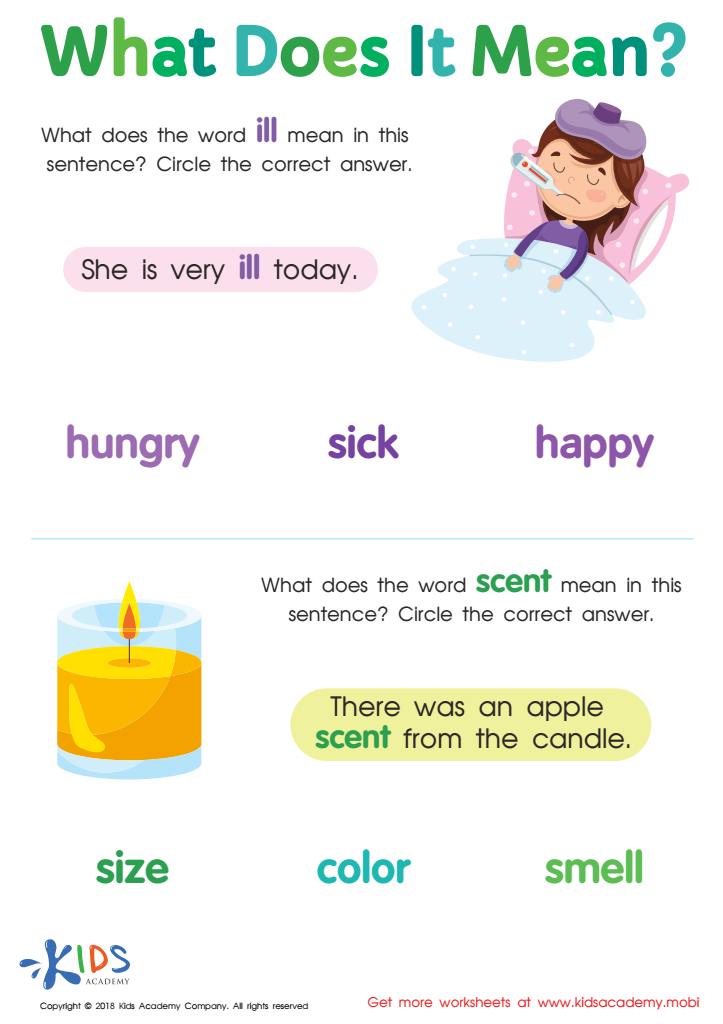

What Does It Mean? Worksheet
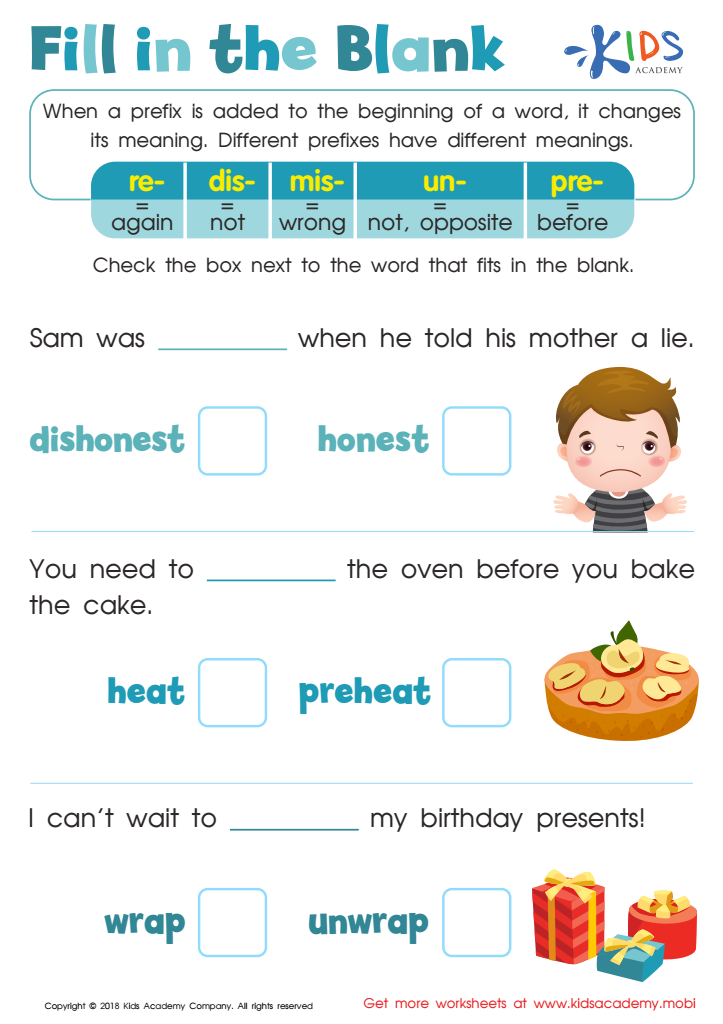

Reading: Fill in the Blank Worksheet
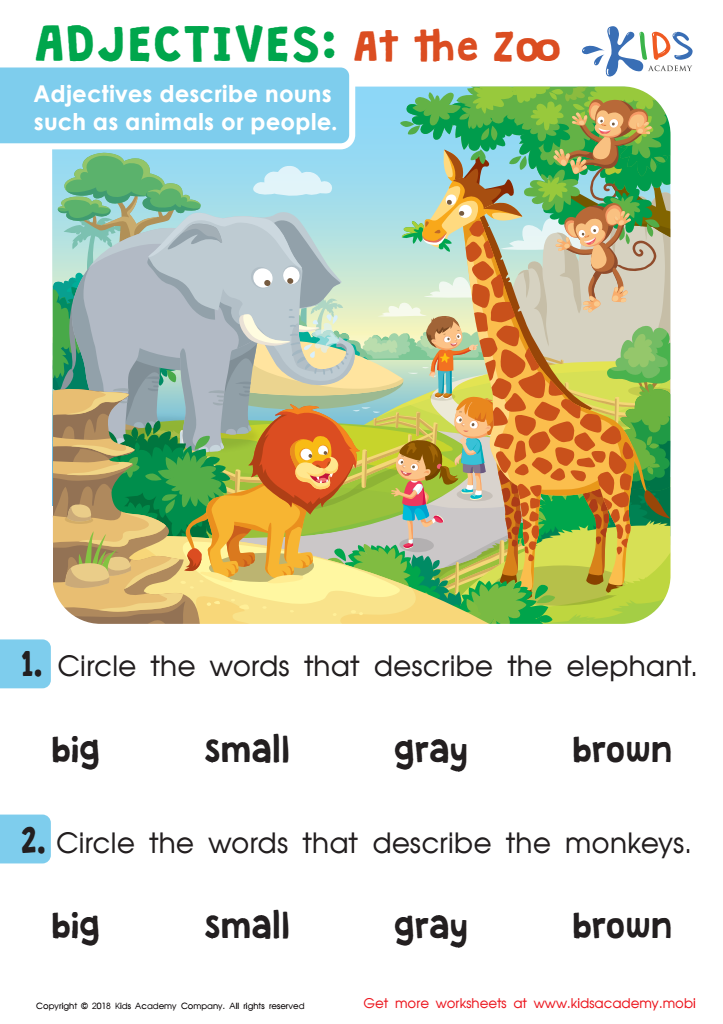

Adjectives: At The Zoo Worksheet
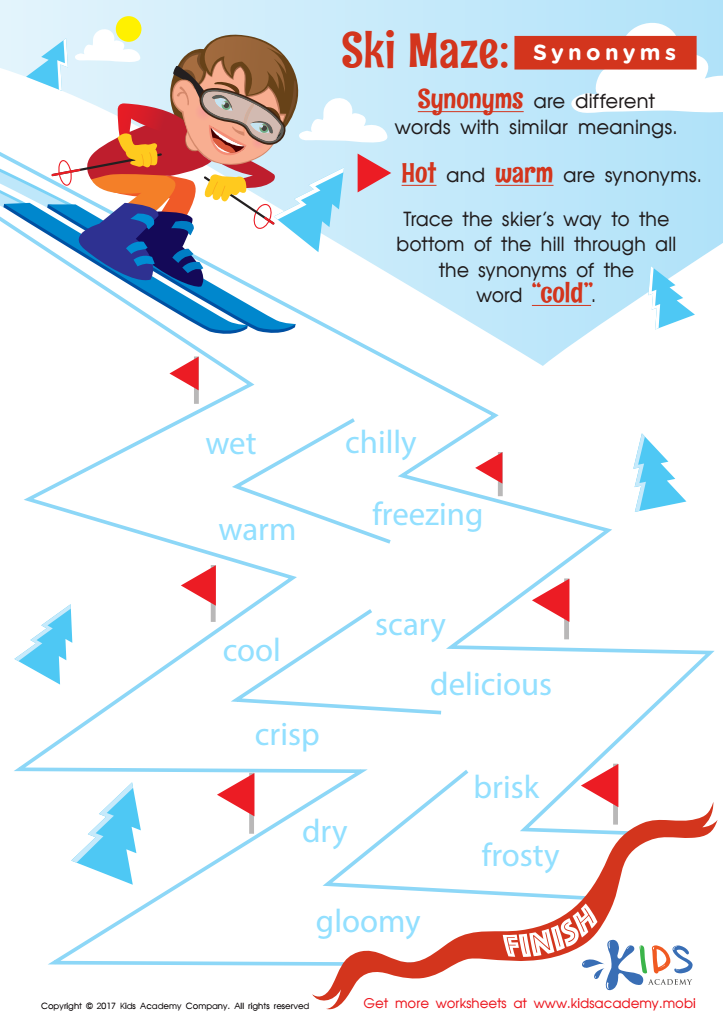

Free Printable Synonym Worksheet
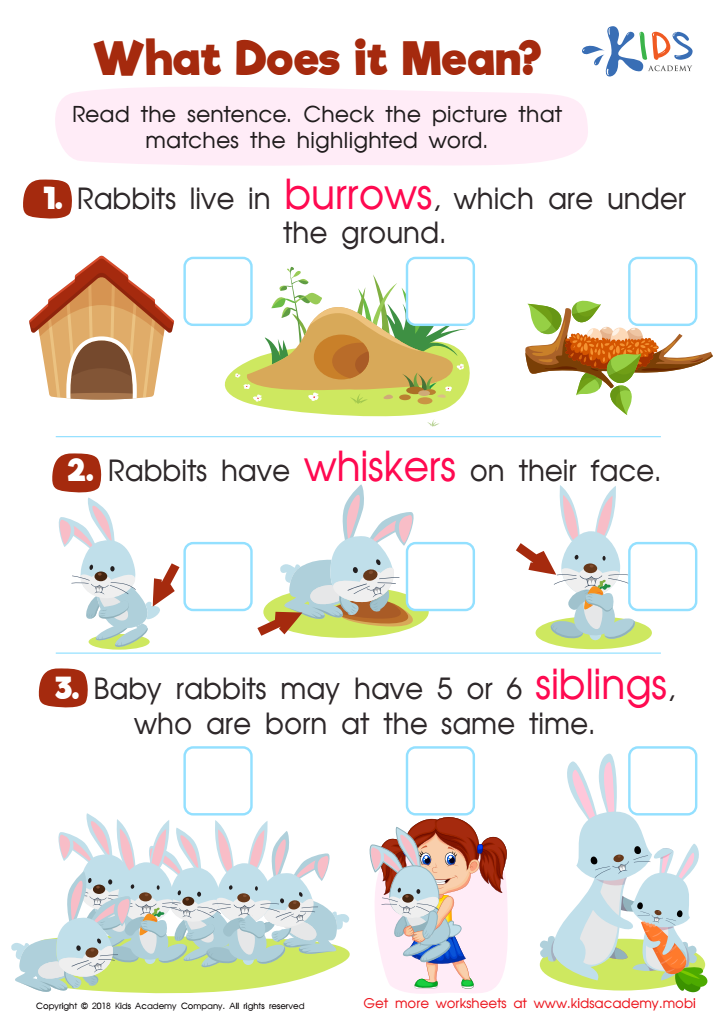

What Does It Mean? Worksheet
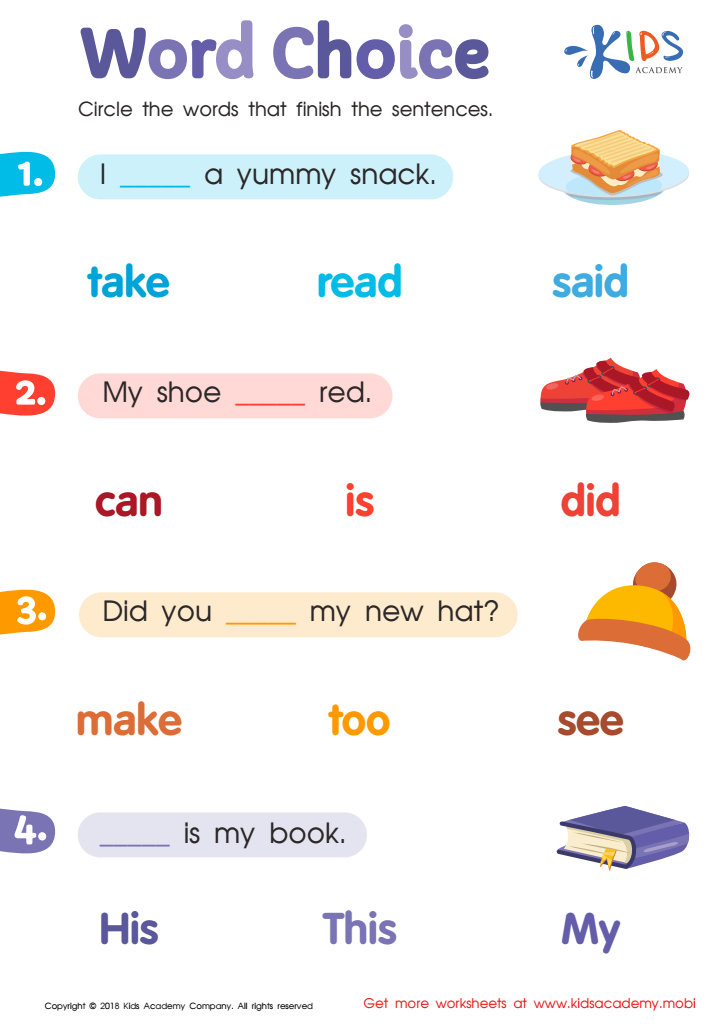

Word Choice Worksheet
Caring about contextual understanding and building vocabulary in 7-year-olds is paramount for parents and teachers. At this age, children are rapidly developing their language skills, which are foundational for reading comprehension and overall academic success. Contextual understanding means grasping the meaning of words within the larger framework of sentences and stories, which is crucial for nuanced learning. It enables children to intuit meanings and infer intentions behind words and phrases, rather than relying solely on rote memorization.
Building a strong vocabulary equips children with the tools to express themselves more clearly and effectively. This not only enhances communication skills but also boosts their confidence in social interactions. Moreover, a rich vocabulary directly impacts reading capabilities. Children who can understand and use a broad range of words are more likely to enjoy reading, which in turn boosts their academic performance across subjects.
Additionally, well-developed vocabulary and contextual skills foster critical thinking. Children learn to compare and contrast, understand cause and effect, and make predictions more accurately. This cognitive development early in life creates a strong foundation for complex problem-solving abilities later on.
In essence, focusing on contextual understanding and vocabulary ensures that children don’t just learn information, but they understand and can apply it confidently in various situations. This holistic development is pivotal for lifelong learning and success.
 Assign to My Students
Assign to My Students

















.jpg)








